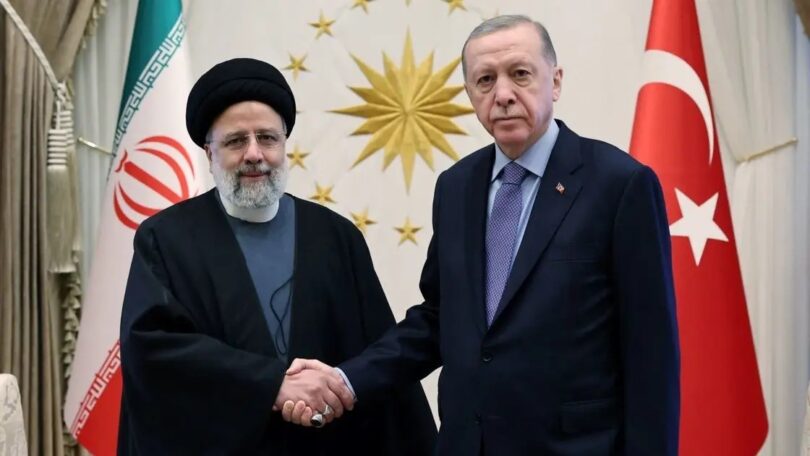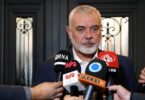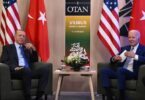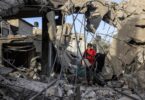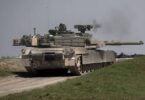ANKARA (AFP): Turkish President Recep Tayyip Erdogan said Wednesday that he and visiting Iranian counterpart Ebrahim Raisi agreed on the need to avert the Israel-Hamas war from engulfing the entire Middle East region.
But Raisi countered that it was important for all countries to cut off trade with Israel — an apparent reference to Turkey’s steadfast refusal to do so that underscored tensions in Ankara’s ties with Tehran.
The Iranian president was paying his first official visit to Turkey since his 2021 election for talks originally aimed at ironing out a raft of problems between the historically close but uneasy neighbors.
The trip was delayed twice by the rapid escalation of the war in Gaza and a brutal bomb attack in Iran claimed by ISIS that killed 89 people earlier this month.
Erdogan told a joint media appearance in Ankara that the two leaders agreed on the need to contain the violence in Gaza and to step up their fight against “terrorism.”
“We agreed on the importance of avoiding steps that would further threaten the security and stability of our region,” Erdogan said.
Shipping disruptions
Raisi arrived in Turkey less than a day after the United States and Britain conducted a new wave of joint airstrikes against Iranian-backed Houthis in Yemen in response to their attacks on Red Sea shipping lanes.
Several shipping firms have directed traffic away from the Red Sea and started using a longer route around the Cape of Good Hope in South Africa as a security precaution.
The steps have disrupted trade and threatened global supply chains.
The Iranian president did not refer to the Houthis directly in his public comments.
Tehran has previously argued that the Houthis have the right to try to prevent ships from reaching Israel — but that it did not directly influence the group’s actions.
Raisi said he believed that the Palestinians in Gaza had already “won” the war against Israel because they were fighting more than 100 days into the conflict.
Yet the turmoil engulfing the Middle East since Israel went to war in retaliation for Hamas’ October 7 attack has added a new layer of complexity to the two neighbors’ relations.
‘Cutting vital arteries’
Erdogan depicts the Iran-backed Hamas as legitimately elected “liberators” and not the “terrorist” organization it has been called across the Western world.
He has compared Israeli Prime Minister Benjamin Netanyahu to Adolf Hitler for pursuing an offensive that has killed more than 25,000 people — mostly women, children and adolescents — according to Gaza’s health ministry.
But Erdogan had initially defended Israel’s right to respond to the Hamas raids that resulted in the death of 1,140 people — also mostly civilians — according to an AFP tally based on official Israeli figures.
Analysts note widespread anger in Iran’s official and semi-official media about Turkey’s continuing trade and diplomatic relations with Israel.
Raisi stressed in his public remarks that it was essential for all nations to “limit their relationship with the Zionist regime.”
“We have no doubt that measures should be taken to deter the Zionist regime and its atrocities,” Raisi said.
“Certainly, cutting the vital arteries of the Zionist regime, and political and economic relations can be effective in forcing the Zionist regime to end all these atrocities.”
Boosting trade
The sides’ differences over trade add to existing tensions between the two regional powers in Syria — where they supported opposing camps in the country’s civil war — and in the conflict between Azerbaijan and Armenia over the Nagorno-Karabakh enclave.
In Syria, Turkey backed opposition efforts to topple Iranian- and Russian-backed President Bashar al-Assad during Syria’s civil war.
Iran has recently tried to mediate a truce between Erdogan and al-Assad — a process that appears to have stalled in recent months due to resistance to the overture in Damascus.
The sides signed 10 agreements and memorandums of understanding that are aimed in part at eventually boosting annual trade to $30 billion.
Analysts estimate the current level at $6 billion.

